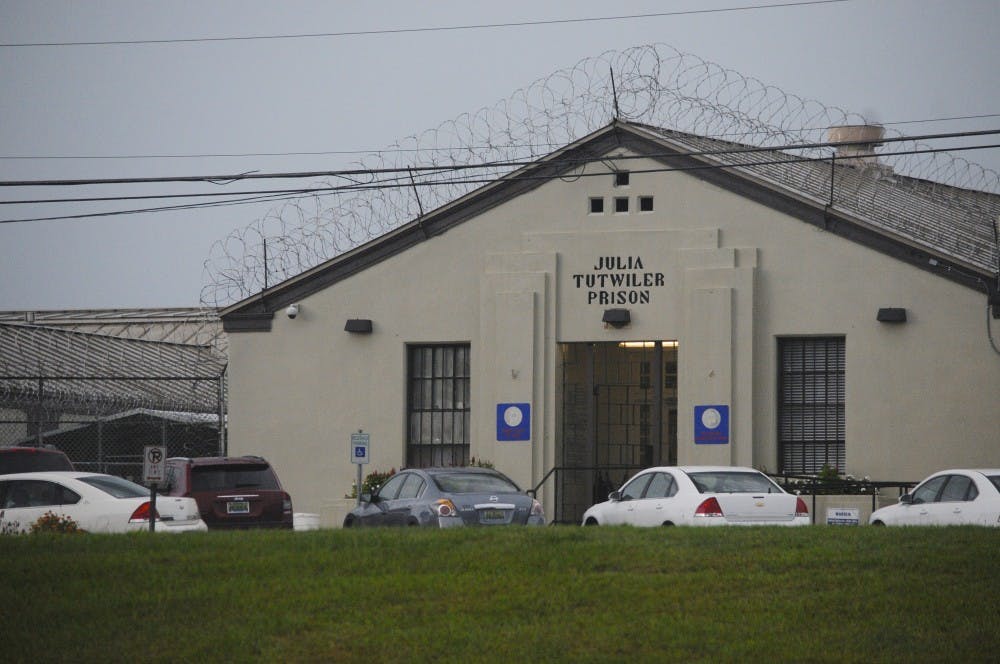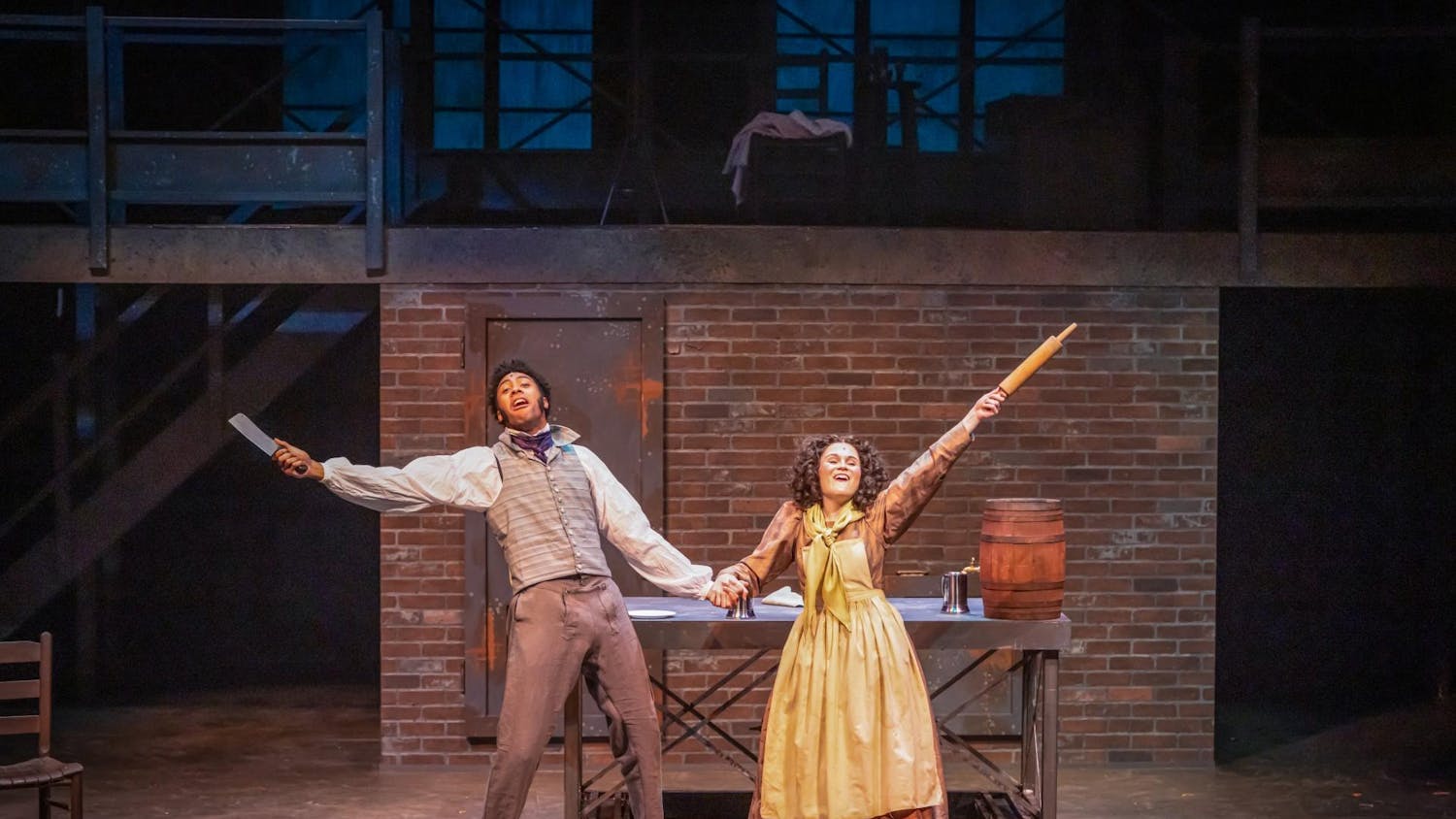Correction: The Plainsman wrongly stated that CoreCivic had been accused of stealing $20 million from a previous prison construction bid in Kansas. According to reporting by The Kansas City Star, the governor of Kansas, Laura Kelly, said she felt "hoodwinked" by CoreCivic, Inc. The state signed a deal with the company to construct a prison facility and to temporarily house 600 Kansas inmates in a CoreCivic facility in Arizona. The Plainsman also assessed the private prisons to be human-rights violating companies — a characterization that has not been thoroughly proven. We sincerely regret the errors and apologize to our readers.
On April 2, the U.S. Department of Justice wrote an open letter to Gov. Kay Ivey.
The letter contained the conclusions of a DOJ investigation into conditions inside Alabama’s prisons, and the findings were damning.
“We conclude that there is reasonable cause to believe that the conditions at Alabama’s prisons violate the Eighth Amendment to the Constitution,” the DOJ wrote. “In particular, we have reasonable cause to believe that Alabama routinely violates the constitutional rights of prisoners housed in Alabama’s prisons by failing to provide safe conditions.”
The remainder of the 56-page letter described, in graphic detail, the acts of violence committed by and toward prisoners in Alabama.
It also explained the ways in which the problems in Alabama’s prisons are “severe, systemic and exacerbated by serious deficiencies in staffing and supervision and overcrowding.”
According to the DOJ, the acts of violence being committed in these prisons should be blamed on the Alabama Department of Corrections.
However, placing all of the blame for Alabama’s failing prison system on a single department within the state’s government is too broad of a statement. Alabama’s prisons aren’t understaffed and falling apart because one department is lazy or inefficient.
This malignant neglect is a symptom of a much larger American narrative surrounding crime and punishment.
It’s the result of decades of fear, privatization and a general lack of empathy.
Much of this came as a reaction to the counterculture movements in the second half of the 20th century which saw riots, assassinations and an increase in recreational drug use.
This in turn created a backlash of conservative resurgence that brought with it a noticeable push for politicians in Alabama, and across the nation, to be “tough on crime.”
The late 1970s, 80s and 90s saw politicians like George Wallace, Ronald Reagan, George H. W. Bush and Bill Clinton run on — and be elected because of — platforms that included a stricter and less forgiving justice system.
The manifestations of this were mandatory minimums for prison sentences, three-strike laws, a “war on drugs” and federal funding being directed toward local police forces.
Unsurprisingly, the nation’s prison population expanded far beyond its infrastructure capacities.
This hike was so steep that the United States, the “land of the free” now has more incarcerated individuals than any other country in the world.
That glut of prisoners is one of the largest problems pointed out by the DOJ’s report.
Alabama currently houses approximately 16,000 male inmates in 13 prisons across the state.
Taking into account the original occupational intentions of these prisons, the statewide occupancy rate is currently between 165 - 180%.
The report also said the number of correctional officers has fallen from 1,800 in 2013 to fewer than 1,100 in 2018.
Simultaneously, the instances of prisoner-on-prisoner violence have nearly doubled in the last five years.
So, Alabama’s prison population is too large, has been kept in facilities that are too small and has been watched by a force of correctional officers that is too few.
Thankfully, some progress is being made.
Under threat of a potential federal lawsuit, Alabama has issued a long-term plan to address this problem.
Sadly, this plan is also quite flawed and doesn’t ensure that any of the DOJ’s original complaints will be solved.
According to the ADOC, the crux of the current plan is a $900 million bid for the construction of at least three mega-prisons which would each hold 4,000 prisoners.
However, the state doesn’t intend to build these itself. Rather, it put out a bid and is allowing private companies to build, maintain and own the facilities while the government essentially leases them.
It’ll be almost like a storage unit: someone else builds a massive piece of infrastructure, the government pays a monthly fee and then everyone tries to forget what they put in there.
Last month, Ivey announced five companies that have expressed interest in the $900 million construction bid: The Geo Group, Inc.; Corvias, LLC; Corrections Consultants, LLC; CoreCivic, Inc. and Alabama Prison Transformation Partners.
According to reporting from Alabama Political Reporter, one of these companies, APTP, has no record of existence beyond the governor’s announcement.
According to reporting by The Kansas City Star, the governor of Kansas, Laura Kelly, said she felt "hoodwinked" by CoreCivic, Inc. Nevertheless, the state signed a deal with the company to construct a prison facility and to temporarily house 600 Kansas inmates in a CoreCivic facility in Arizona.
In 2010, Geo Group, Inc. became the target of a class-action lawsuit over the conditions inside the Walnut Grove Youth Correctional Facility in Mississippi. The settlement of that lawsuit required Mississippi to end its contract with Geo Group, and multiple state officials were forced to resign amidst indictments of corruption and mismanagement.
The ADOC has said in statements that details of a potential contract between Alabama and one of the five companies will be kept secret until a final deal is reached.
This means Alabamians won’t even know which company will be getting their tax dollars until it is too late.
But the sad truth is that most Alabamians wouldn’t care anyway.
Even though roughly 1.2% of male Alabamians are in prison, the majority of voters don’t seem to care how they are treated.
The treatment of prisoners hasn’t been a major issue in any recent gubernatorial campaigns, local sheriffs have been able to legally siphon money from prisoners’ food budget for decades and the ADOC’s recent changes have only come while under threat of a federal lawsuit.
This problem will never be solved by private companies, and the state government will never do it without provocation.
But we, the voters, can be that provocation.
The state government is trying to fix this massive problem, but we have to ensure they do it humanely.
Our prisons aren’t filled with criminals — they’re filled with fathers, husbands, brothers, sisters, wives and mothers.
They’re filled with our fellow Alabamians.
Yes, the people in prisons have done some bad things, but that doesn’t mean they deserve to be forgotten.
This editorial is the majority opinion of the Editorial Board and is the official opinion of the newspaper.
Do you like this story? The Plainsman doesn't accept money from tuition or student fees, and we don't charge a subscription fee. But you can donate to support The Plainsman.





